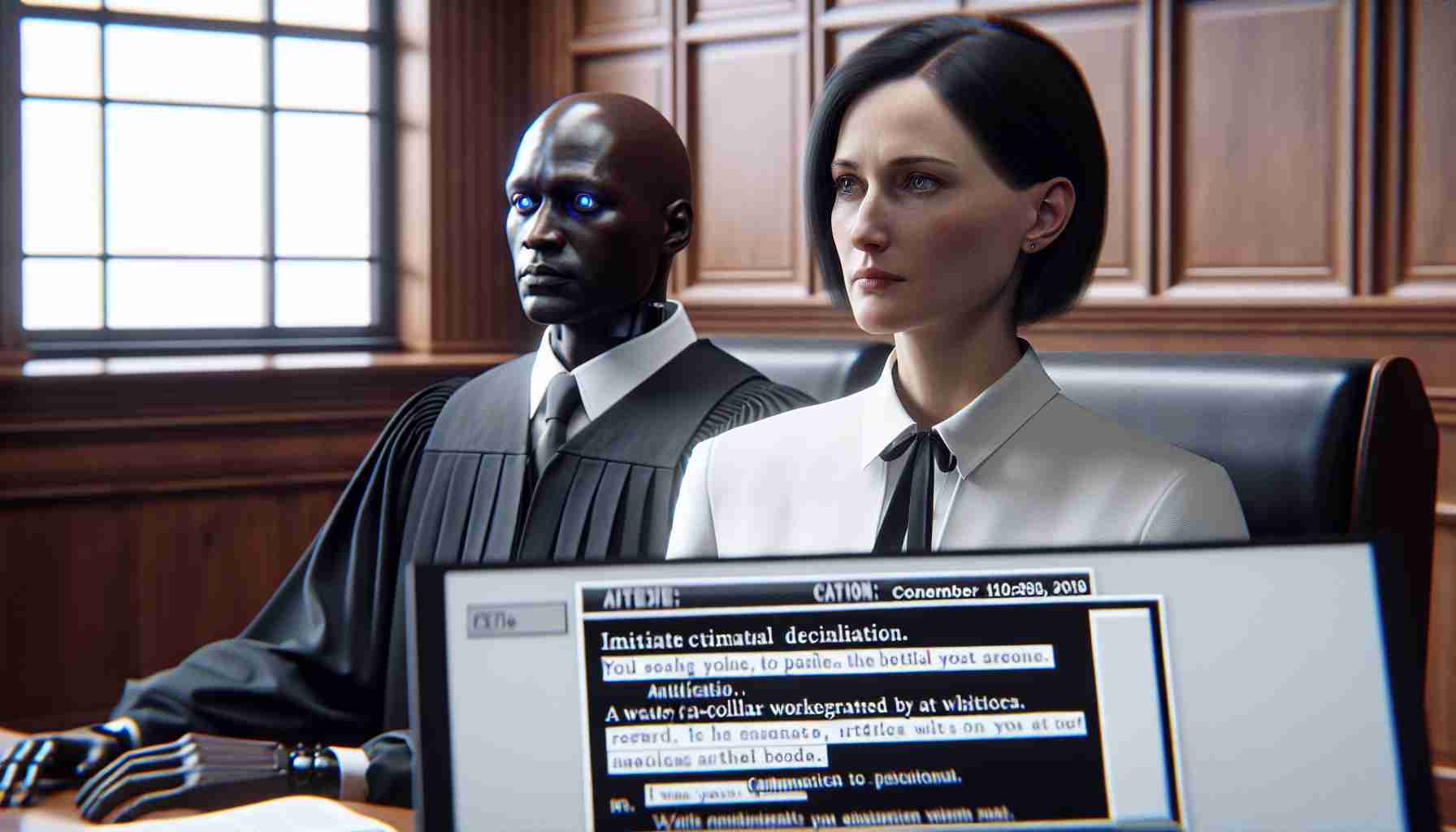In a surprising turn of events, a federal judge in New York has declined to impose sanctions on Michael Cohen, the former attorney for Donald Trump, for submitting fake case citations generated by artificial intelligence. U.S. District Judge Jesse Furman called the incident “embarrassing” but did not find evidence of bad faith to warrant sanctions against Cohen. This decision comes as Cohen is set to be a key witness in Trump’s forthcoming criminal trial in Manhattan.
The fake citations, which were created using Alphabet’s Google Bard, appeared in a filing submitted by Cohen’s lawyer, David Schwartz, in an attempt to end Cohen’s supervised release. Schwartz claimed that he believed the citations came from another lawyer, Danya Perry, and did not verify their accuracy. Both Schwartz and Cohen have since apologized for the error. However, Judge Furman criticized Schwartz for negligence but did not believe sanctions were necessary.
It is worth noting that Cohen, a disbarred lawyer, genuinely believed that the fake cases were real. Judge Furman expressed surprise that Cohen mistook Google Bard for a powerful search engine instead of recognizing it as a “generative text service” like ChatGPT. This highlights the need for better understanding and caution when using AI tools in legal proceedings.
This incident adds to the ongoing debate surrounding the use of AI-generated content in the legal field. Chief Justice John Roberts of the U.S. Supreme Court has previously cautioned that using AI requires “caution and humility.” He also warned against citing nonexistent cases, calling it “always a bad idea.”
In his attempt to end his supervised release, Cohen argued that his recent testimony in a civil fraud case against Trump showed his remorse and commitment to upholding the law. However, Judge Furman found that Cohen’s admission of lying during his previous guilty plea for tax evasion raised concerns about his credibility. The judge stated that Cohen’s ongoing efforts to distance himself from his prior acceptance of responsibility demonstrated the need for deterrence.
While Cohen’s legal team hailed the absence of sanctions as a victory, Danya Perry disputed Judge Furman’s characterization of Cohen’s testimony, pointing out that the judge in the civil fraud case affirmed Cohen’s credibility. Perry argued that defendants often feel pressured to accept plea deals and that Cohen was no exception.
As this case unfolds, it serves as a reminder of the complexities and challenges brought by AI technology in legal proceedings, and the importance of thorough verification and responsible use of AI-generated content.
FAQs
- What were the fake citations that Michael Cohen submitted?
- Why did the judge decline to impose sanctions on Cohen?
- What did Chief Justice John Roberts say about using AI in the legal field?
- Why did Judge Furman question Cohen’s credibility?
- What does this case highlight about the use of AI in legal proceedings?
Cohen submitted three fake case citations in a filing seeking to end his supervised release. These citations were generated by Alphabet’s Google Bard, an AI tool.
Judge Furman did not find evidence of bad faith to justify imposing sanctions on Cohen. Although he criticized Cohen’s lawyer for negligence, he concluded that sanctions were not warranted.
Chief Justice John Roberts warned that using AI requires caution and humility. He also advised against citing nonexistent cases, referring to it as “always a bad idea.”
Judge Furman raised concerns about Cohen’s credibility due to his admission of lying during his guilty plea for tax evasion. The judge believed that Cohen’s attempts to distance himself from his prior acceptance of responsibility demonstrated a lack of genuine remorse.
This case underscores the need for better understanding and caution when using AI tools in legal proceedings. It serves as a reminder of the complexities and challenges associated with AI-generated content and the importance of thorough verification.
In the legal industry, the use of artificial intelligence (AI) tools has become a subject of debate and scrutiny. The recent incident involving Michael Cohen, the former attorney for Donald Trump, submitting fake case citations generated by AI has shed light on the challenges and complexities associated with AI technology in legal proceedings.
U.S. District Judge Jesse Furman, while calling the incident “embarrassing,” declined to impose sanctions on Cohen, citing a lack of evidence of bad faith. Cohen’s lawyer, David Schwartz, claimed that he believed the fake citations came from another lawyer and did not verify their accuracy. Although Judge Furman criticized Schwartz for negligence, he did not believe sanctions were necessary.
The fake citations were generated using Alphabet’s Google Bard, an AI tool. This case highlights the need for better understanding and caution when using AI tools in legal proceedings. Judge Furman expressed surprise that Cohen mistook Google Bard for a powerful search engine instead of recognizing it as a “generative text service” like ChatGPT.
Chief Justice John Roberts of the U.S. Supreme Court has previously cautioned that the use of AI in the legal field requires “caution and humility.” He has warned against citing nonexistent cases, referring to it as “always a bad idea.” This case underscores the importance of thorough verification and responsible use of AI-generated content.
Looking ahead, the use of AI in the legal industry is expected to continue expanding. Market forecasts suggest that the global legal AI software market is projected to reach a value of $1.64 billion by 2026, with a compound annual growth rate of 31.3% during the forecast period.
However, the industry faces challenges and concerns related to the ethical implications of AI technology. Issues such as bias in AI algorithms, data privacy, and accountability remain key areas of focus. Legal professionals must navigate these challenges while striving for the accurate and responsible utilization of AI tools.
For more information on AI in the legal industry, you can explore reputable sources such as LexisNexis and The Law Society. These websites provide valuable insights into the industry, market forecasts, and issues related to the use of AI in the legal field.
The source of the article is from the blog macnifico.pt

